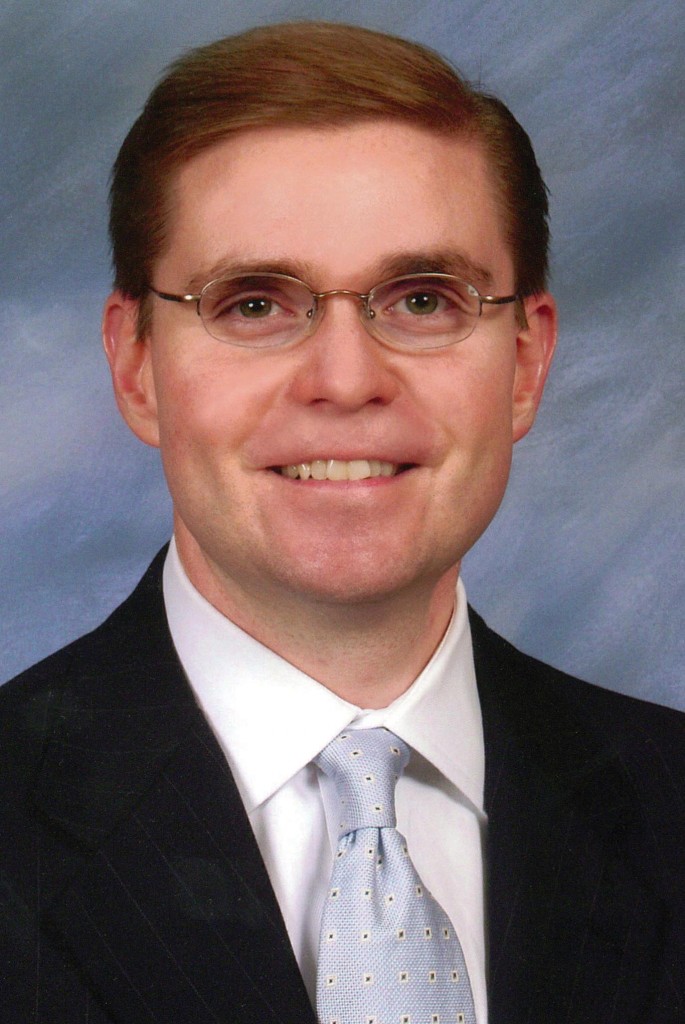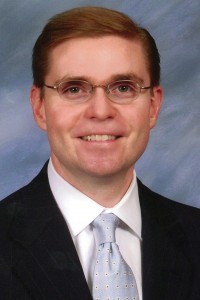 1. Where were you born, and where did you go to college? I was born in Monroe, La., and went to college at Louisiana State University, then on to New Orleans Seminary. I went to graduate school at Johns Hopkins University in Baltimore, Md. Originally, I was a music education major, but slowly became interested in the Bible, theology and public policy.
1. Where were you born, and where did you go to college? I was born in Monroe, La., and went to college at Louisiana State University, then on to New Orleans Seminary. I went to graduate school at Johns Hopkins University in Baltimore, Md. Originally, I was a music education major, but slowly became interested in the Bible, theology and public policy.
2. Who are the most important people who shaped your life?
First, my father. He died when I was 15 years old, but he served in the United States Army for almost 25 years. He was awarded four bronze stars with valor. I admired him greatly and miss him still. David Dockery and Timothy George have been key theological mentors to me. They taught me very well through their books and writings and invested in me personally. Danny Akin helped me to see the primacy of the Gospel for every area of ministry. Mark Dever taught me about the importance of the local church—and also introduced me to my wife!
Andy Davis has modeled for me the impact of expository preaching in the life of a local congregation. He is also one of my dearest friends. Emmanuel Kampouris, the former chairman, president, and CEO of American Standard in New York, trained me, helped me and mopped up my messes more times than I care to remember. I am deeply grateful to God for him as well.
3. What is your vision for the Baptist Messenger?
It is my hope that the paper might remain a trusted partner in the work of ministry for pastors, church leaders and all Oklahoma Baptists through the provision of key insights and resources which might be helpful in the rough and tumble existence of church life. We will endeavor to engage, encourage and equip all who read this paper from the foundation of an absolute trust in the inerrancy, authority and primacy of the Word of God.
4. Are state papers still a viable tool for state conventions and local churches?
Well, they can be. In times past, state papers played a crucial role in the life of many Southern Baptist churches, state conventions and associations. There is a need today for a renewal of sorts where these organs of communication must be re-tethered to the Word of God and to the life of the local church. The paper must provide news to be sure, but it also must provide a compelling vision for gospel-centered communities of believers who are actively engaged in an ever-changing world with unchanging power of the Gospel of Jesus Christ. Everything we do should help advance that goal.
5. Will there be changes to the Baptist Messenger?
Yes. We hope to build on the work of those who have gone before us. Oklahoma Baptists have been blessed with many capable editors who worked to shape the paper in ways which have benefitted Oklahoma Baptist churches for almost 100 years. By God’s grace, we hope to use technology to expand the influence of the Baptist Messenger and make our presence known locally and nationally.
6. What is one of your favorite Bible verses?
“But when the goodness and loving kindness of God Our Savior appeared, He saved us, not because of works done by us in righteousness, but according to His own mercy, by the washing of regeneration and renewal of the Holy Spirit whom He poured out on us richly through Jesus Christ our Savior, so that being justified by His grace we might become heirs according to the hope of eternal life. Titus 3: 4-7.
7. You have served in several political administrations. How have these experiences helped prepare you for this ministry?
Life in politics can be quite volatile—much like life in a local Baptist church! Writing for a living can also be very difficult, because the deadlines force you to learn how to communicate to a large swath of people very quickly. By working in governor’s offices and in Washington, D.C., I was able to practice writing in a very competitive and un-forgiving atmosphere. This helped me read quickly, write clearly and steel up my feelings because editors can be brutal! In God’s providence, I am still learning to write more clearly so as not to add confusion to issues. Rather, I hope to bring clarity to issues.
8. Tell us about your family.
I have a wonderful wife— Nicole. She is originally from Syracuse, N.Y. We met in Washington, DC. She is the most capable person I know. She is a voluminous and voracious reader and a brutal editor. She looks at most everything I write and is gracious, but as I said—brutal. We have two children —Bradford Douglas, who is 4 years old, and Barbara Anne, who is 2 years old. They are a joy to our lives and keep us running to be sure. We struggle to communicate well and love each other well like all families do, but we have both been forgiven much by Jesus.
We are learning that we are just two sinners who said, “I do.” God has blessed us so very much, and we are grateful for each other. We are almost opposites in personality, but actually, that is a strength of our marriage. It has forced us to understand one another and learn how to minister to each other, because we each relate in different ways to ideas and experiences.
9. What book are you now reading?
Actually, I am reading three books: Total Church by Tim Chester and Steve Timmis; Southern Baptist Identity by David Dockery; and the new history of Southern Seminary by Greg Wills. My wife tells me I have the gift of bibliography, which I think is probably true!
10. Are denominations such as the Southern Baptist Convention still viable?
Yes. My friend, J.D. Greear, Lead Pastor of the Summit Church in Durham, N.C., prefers to speak of the SBC as a “network of churches” who cooperate together for various ministries and missions. The SBC has worked well through the years in some ways, and was less helpful in others. I think there is a renewed passion for the gospel in the SBC, and we are seeing a greater focus on local churches. That is as it should be. As local churches grow, more and more people will be impacted with the Gospel. Denominational agencies and entities must respond and adapt to the demands of local congregations. I pray the Baptist Messenger might be blessed to play a role in the life of many congregations.





